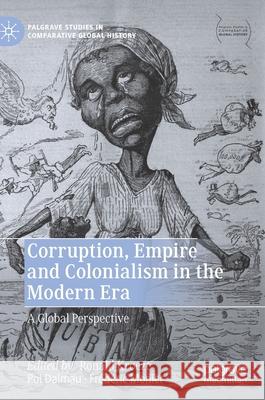Corruption, Empire and Colonialism in the Modern Era: A Global Perspective » książka
topmenu
Corruption, Empire and Colonialism in the Modern Era: A Global Perspective
ISBN-13: 9789811602542 / Angielski / Twarda / 2021 / 362 str.
Kategorie BISAC:
Wydawca:
Palgrave MacMillan
Seria wydawnicza:
Język:
Angielski
ISBN-13:
9789811602542
Rok wydania:
2021
Wydanie:
2021
Numer serii:
000811685
Ilość stron:
362
Waga:
0.59 kg
Wymiary:
21.01 x 14.81 x 2.24
Oprawa:
Twarda
Wolumenów:
01
Dodatkowe informacje:
Wydanie ilustrowane











